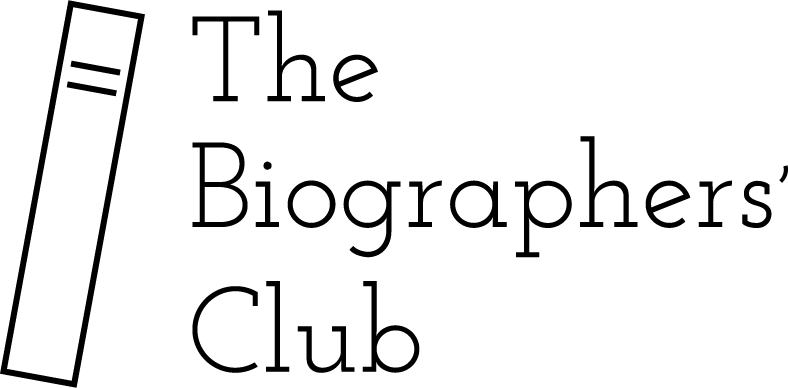Tony Lothian Prize 2020
Our shortlist for the best proposal for an uncommissioned biography received in 2020 is just announced, and the prize will be awarded at a Biographers’ Club celebratory event on Zoom on Tuesday 1 December
Brad Bigelow: Failures – Six Ways to be Forgotten
There’s really only one way to succeed as a writer: to be read. And while a lucky few become part of the literary canon, countless others are forgotten, for myriad reasons: bad timing, poor marketing, prickly personality, illness, war, politics …. Failures illustrates the fine line between those who win and those who lose – and arguably for reasons that have nothing to do with literary merit. It tells of six talented writers whose works garnered fulsome praise at the time, and stand up to re-reading decades later, yet have faded in the public memory. Each life reminds us that talent may count for less than connections, opportunities, good luck and bad, and inspire us to look beyond literature’s well-trodden paths and discover the riches to be found there.
Kate Crehan: But Will it Get a Laugh? The Life of Doris Hare in Three Acts
Doris Hare’s performance career, from child actress to Variety and the pre-war revues of Noel Coward and Andre Charlot to nationwide fame in the TV sitcom On the Buses, spans much of the 20th century. She rode the evolution of popular entertainment from the ‘portable’ theatres and ‘moving pictures’ of her working-class childhood to the arrival of film, radio and television. And such was her versatility, as her daughter shows, that she also later made forays into serious theatre at the Royal Court, RSC and National Theatre. Hare is the focus of a larger story of comedy, gender and class that shows what it was like to live and work through the seismic shifts in the landscape of entertainment, changes that transformed the performer/audience relationship for ever.
Alex Grant: The Last Imposter – The Enigma of John Stonehouse
‘The MP who left his clothes on a beach.’ ‘The man who did a Reggie Perrin.’ More than 30 years after his death, the Labour politician John Stonehouse (1925–88) continues to fascinate. He is still notorious for faking his own death in Miami in 1974, fleeing to Australia with two false passports, and trying to start a new life there with his mistress Sheila Buckley. But there was much more to his life than this: he did not just change his identity once, it was a career-long habit. Anti-colonialist, spy, conspiracy theorist, thriller writer, he was a man whose character combined fatal flaws with a curious integrity. Most accounts of Stonehouse’s life end when he faked his own death, but the most fascinating years were still to come. Alex Grant takes a fresh look at this modern legend, and in doing so casts new light on not just his subject’s life but the manners and mores of his times.
Gerry Harrison: Good Guy or Bad Guy – The Enigmas of Reggie Smith
The complex and colourful life of R.D. or ‘Reggie’ Smith (1914–85) stands at the cross-roads of many others – political, literary, espionage, showbiz and even sporting – and richly evokes the cultural and political life of the mid-20th century. Married to the novelist Olivia Manning, he was both a Communist (recruited by Anthony Blunt) and a member of M15 and British Military Intelligence. As a ‘legend’ at the BBC he set future stars Claire Bloom, Jean Rhys, Tony Richardson, Harold Pinter and Joan Bakewell on their paths to success, and his close friends included Louis Macneice, Dylan Thomas and James Cameron. Yet he has hitherto lingered in the shadows of others’ lives, eluding biographers to date. This revelatory and deeply researched life is set to put him centre-stage at last.
Jayne Sharratt: Amabel Williams-Ellis and The Art of Being a Woman
Williams-Ellis’s book The Art of Being a Woman (1951) may have looked like a housewife’s manual but was in fact an incendiary attack on the way society was organised, the expectations placed on women, and a plea for improvement for the next generation. How had Amabel Strachey, married to the architect of Portmeirion Clough Willliams Ellis, arrived at this trenchant position? Her privileged upbringing, her glamorous marriage, her successful career as journalist, novelist, editor and left-wing activist, and her deep engagement in her daughters’ lives were not on the surface conducive to rebellion, yet she understood the ingrained prejudices that held women back from having ‘a life of their own’ like few others. Jayne Sharratt interrogates what it was that brought her to this position, and in doing so explores the changing lives of women in the 20th century.
Sophie Shorland: The Portingall Queen
When Catherine of Braganza stepped onto English soil to marry Charles II and become Queen of England she brought with her not only vast riches, spices and sugar but the power of the Portuguese Empire, then at its zenith of its power in India and South East Asia. She not only helped broker the longest alliance between Britain and Portugal, but introduced trousers for women, tea-drinking, Baroque art and music, and the court masque. Her life was a nexus of the Old and New worlds, war and exploration, frivolity and scientific enquiry. Somewhat overlooked by historians, Catherine has long been due a re-evaluation, and Sophie Shorland brings her, and her times, vividly to life in this sprightly and ground-breaking portrait.

